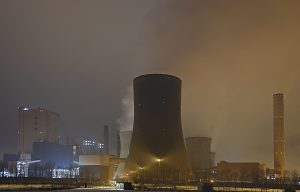The environmental impact of nuclear weapons and the destruction of ecosystems. Nuclear weapons have serious and lasting effects on the environment and ecosystems due to their destructive power and radiation emissions.
Environmental Impact And Ecosystem Disruption Caused By Nuclear Weapons
Environmental effects of nuclear weapons: One of the most obvious effects of nuclear weapons is the physical destruction caused by the explosion itself. Explosions create shock waves that can destroy buildings, infrastructure, and natural habitats, thereby causing significant damage to ecosystems.
The Entire ecosystems can be devastated, and biodiversity loss can have far-reaching effects on ecosystem balance and overall environmental health.
Another big problem is the release of radioactive materials into the environment which Nuclear weapons produce radioactive fallout.
Radioactive fallout consists of radioactive isotopes that can persist in the environment for years or even centuries. these radioactive particles can contaminate soil, water bodies, and vegetation, posing serious health risks to both humans and wildlife. The radiation exposure can lead to genetic mutations, cancer, and other long-term health problems.
The Atmospheric Testing Of Nuclear Weapons
Atmospheric nuclear weapons testing in the mid-20th century caused significant environmental damage.
These experiments released large amounts of radioactive isotopes into the atmosphere, which were dispersed by wind around the world.
These pollution has a direct impact on human health and ecosystems, with increased rates of cancer and other health problems observed in areas downwind of test sites. the underground nuclear tests also affect the environment. it can cause cracks in the earth’s crust, releasing radioactive materials into groundwater or creating contamination pathways.
Nuclear Weapons in Conflict Scenarios
The use of nuclear weapons in conflict scenarios can cause large-scale fires, commonly referred to as a nuclear winter, such fires can release large amounts of smoke, soot, and ash into the atmosphere, blocking sunlight and causing a significant drop in temperature and disrupted climate patterns can have serious impacts on agricultural productivity, ecosystems, and ultimately global food security.
In view of the potential environmental and humanitarian consequences of nuclear weapons, efforts have been made to limit their proliferation and promote disarmament, International agreements such as the Treaty on the Non-Proliferation of Nuclear Weapons (NPT) aim to prevent the proliferation of nuclear weapons, promote disarmament, and promote the peaceful uses of nuclear energy.
FAQs About Environmental Impact And Ecosystem
Question 1: What is the physical impact of a nuclear weapon explosion on the environment and ecosystem?
A1: The detonation of a nuclear weapon causes immediate and widespread physical destruction.
The blast wave created by an explosion can level buildings, infrastructure and natural habitats, leading to loss of ecosystems and biodiversity.
The destruction of vegetation, soil and water can have long-term effects on the overall health of the environment.
Q2: What are the long-term consequences of radioactive fallout on the environment?
A2: Nuclear weapons release radioactive substances into the environment, causing long-term consequences.
Radioactive fallout can contaminate soil, water and vegetation, endangering human and animal health.
The existence of radioactive isotopes in the environment can lead to genetic mutations, increased rates of cancer and other health problems in organisms exposed to radiation.
Q3: What impact does atmospheric nuclear testing have on the environment?
A3: Atmospheric nuclear testing, conducted in the mid-20th century, caused significant environmental damage.
These tests released radioactive isotopes into the atmosphere, which spread globally by wind.
The pollution has led to increased rates of cancer and other health problems in areas downwind of the test site.
In addition, the tests have harmful effects on the ecosystem, disrupting the balance of natural habitats and biodiversity.
Q4: Are underground nuclear tests safe for the environment?
A4: Although underground nuclear tests are conducted underground to prevent immediate explosions, they can still have environmental impacts.
Testing could cause cracks in the Earth’s crust, potentially releasing radioactive material into groundwater or creating pathways for contamination.
Careful handling and disposal of nuclear waste generated during testing is essential to minimize environmental risks.

Conclusion
Nuclear weapons have a profound and lasting impact on the environment and ecosystem.
The physical destruction caused by the explosion, the release of radioactive material, and the risk of widespread fires all contribute to ecosystem disruption and pose significant risks to human health and the environment. It is essential to continue disarmament and non-proliferation efforts to mitigate these impacts and ensure a more secure and sustainable future.





3 thoughts on “Environmental Impact Nuclear Weapons”